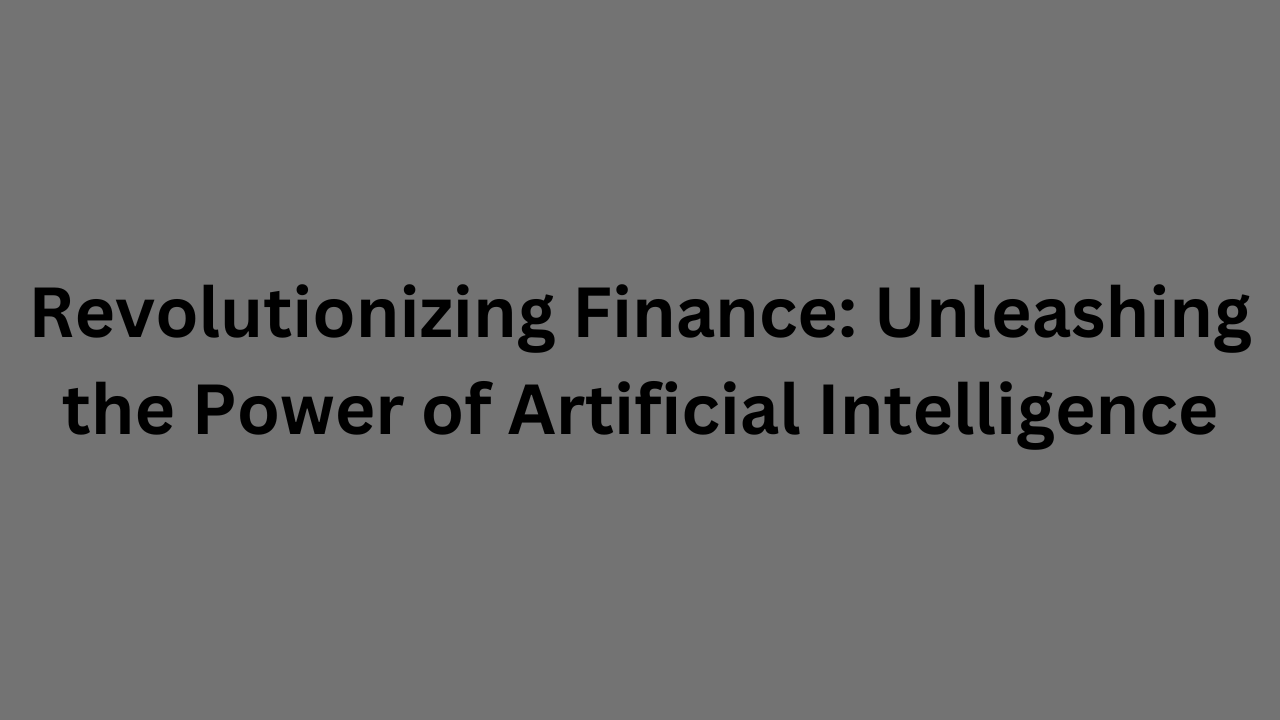Artificial intelligence (AI) has become a powerful driver for change in a number of industries, with the financial industry seeing the most impact. Traditional financial practices have been transformed by the application of AI technologies, allowing for more effective operations, improved decision-making, and the creation of novel financial products.
This article examines the various uses of AI in finance, stressing both its advantages and potential drawbacks.
I. Market analysis and automated trading:
The worlds of trade and market analysis have undergone significant change because of AI. AI-powered algorithms examine enormous volumes of data in real time, spotting patterns and trends that human traders are unable to notice. The accuracy of forecasts made by machine learning algorithms can increase over time, and they can also execute transactions at the best times. A good example is high-frequency trading (HFT), where AI-driven algorithms quickly execute a large number of deals to profit from price discrepancies and market inefficiencies.
II. Fraud detection and risk management
AI algorithms are essential in the field of risk management for identifying and reducing financial hazards. Machine learning models can assess market volatility, estimate the effects of various economic scenarios on investment portfolios, and predict possible credit defaults based on historical data analysis. Anomaly detection algorithms are used by AI to identify unusual transactions and behaviors, protecting financial institutions and their clients from fraud. AI is also helpful in the identification of fraud.
III. Personalization and customer service:
Customer service in the financial industry has been revolutionized by AI-powered chatbots and virtual assistants. These clever solutions promote smooth interactions, give prompt answers to consumer questions, and help with activities like account management, payment transfers, and balance queries. By examining unique preferences, spending habits, and financial objectives, AI also makes it possible to provide personalized financial advice and product recommendations.
IV: Credit scoring and underwriting, section
Traditional credit scoring algorithms frequently rely on a few variables, which could result in unreliable judgments. AI-driven credit scoring uses a larger variety of data, including unorthodox sources like online activity and social media behavior, to produce more thorough and precise credit risk evaluations. This could increase underprivileged people’s access to loans and encourage financial inclusion.
V. Robo-Advisors and wealth management:
With the introduction of robo-advisors, AI-powered platforms that provide automated financial advice and portfolio management, wealth management has become more accessible. These systems optimize investment strategies by taking into account a user’s risk appetite, financial objectives, and market conditions. Robo-advisors reduce the need for human middlemen by offering cost-effective alternatives to regular investors.
VI. Reporting and Regulatory Compliance:
The financial sector is subject to a wide range of rules and reporting specifications. By automating procedures for spotting potential infractions, keeping an eye on transactions for suspicious activity, and producing precise and timely reports, AI makes compliance easier. In order to assure compliance, natural language processing (NLP) systems may review and analyze complicated regulatory documents.
Challenges and Things to Think About
While AI has the potential to alter the financial industry completely, there are some obstacles that must be carefully considered.
Data security and privacy: The rising use of AI necessitates the gathering and analysis of enormous volumes of private financial data. To avoid unauthorized access and breaches, it is essential to ensure data privacy and security.
Bias and Fairness: AI systems may unintentionally reinforce past data biases, resulting in unfair results. It’s important to make efforts to create and train AI systems that value justice and abstain from unfair practices.
Regulation and Ethics: AI technology’s rapid progress has surpassed regulatory frameworks. To avoid potential misuse and retain public trust, specific norms, and ethical standards for AI’s usage in finance must be established.
Transition of Skills: The use of AI in finance may necessitate a shift in workforce skills. Professionals must adapt to new jobs that need them to supervise AI systems, evaluate their outputs, and make informed decisions based on AI-generated insights.
Conclusion:
Artificial intelligence has undeniably altered the financial business, improving operational efficiency, and decision-making, and providing novel financial products and services. AI applications in finance continue to expand and disrupt old methods, from algorithmic trading to risk management and customer service. As the financial sector navigates the difficulties and opportunities posed by artificial intelligence (AI), responsible and ethical deployment will be critical to reaching its full potential and ensuring a sustainable and inclusive financial future.

